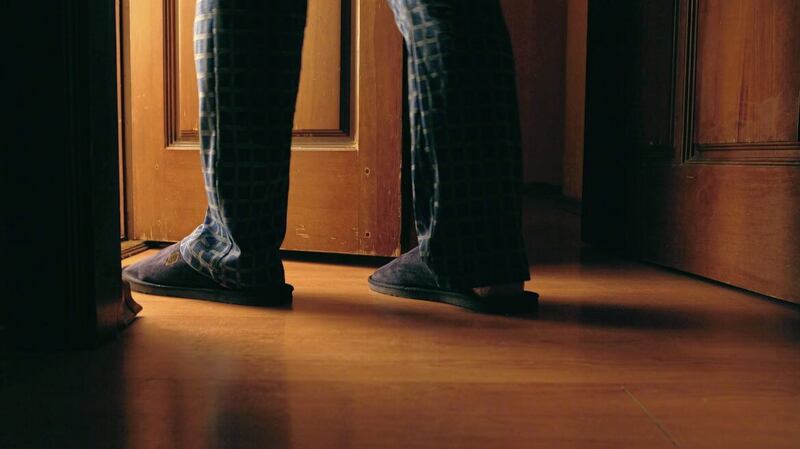As a fit and active man in his early 60s, Raymond Starr had hoped to be enjoying his golden years to the full. Instead, he was left in fear of leaving the house or even of climbing the stairs.
It wasn’t his mobility that was the problem: it was a much more delicate issue.
Like millions more men, Raymond was experiencing the embarrassment and discomfort of urinary incontinence and the impact it can have on a man’s life.
In Raymond’s case, the problem began after surgery for prostate cancer. Diagnosed in 2017, he needed a radical prostatectomy, where the prostate is removed, to stop the cancer from spreading.
"I had been warned that urinary incontinence would almost certainly be an issue after surgery," says Raymond (67).
"But my mind was just firmly focused on getting through the big operation I was facing."
So he was shocked when, a few days after the successful surgery, doctors removed the catheter that had been inserted to allow his bladder to empty while he was bedbound and he found he "was leaking like a running tap".
Raymond was given incontinence pads to wear at home — "but the leakage was so bad I was going through them in a matter of minutes".
His problem was so acute that almost any physical exertion would leave him soaked, uncomfortable and embarrassed.
"Every time I coughed, sneezed or got up from a chair, I would leak and have no control over it," he says.
"Even just going upstairs in the house left me soaked in urine. I had such terrible problems at the beginning that it was difficult to look ahead to the future."
In around 60 per cent of cases, radical prostatectomy, which around 2,000 men in the UK a year undergo after a prostate cancer diagnosis, can cause nerve and muscle damage that can lead to poor bladder control.
It’s one of several causes of incontinence in men, but while urinary incontinence in women — commonly caused by childbirth — has a relatively high public profile, this isn’t true for men.
In fact, an estimated one in 10 men (versus 40 per cent of women) are affected.
The true figures could well be higher, however. A recent survey by Prostate Cancer UK of 5,000 men over 40 found that half reported experiencing urinary incontinence at some point.
"A lot of men definitely find it more difficult than women do to talk about problems with their bladder," says Karen Powell, a nurse specialising in incontinence who runs a telephone advice line for the charity Bladder Health UK.
"Many men who call find it easier to talk over the phone than in person," she says.
"But it may have taken them considerable time to pluck up courage to get in touch."
Experts stress that needing to use incontinence pads at all is sign a man should see his GP, and warn that some men are risking permanent damage by ignoring incontinence-related symptoms until they become a crisis.
Another main cause of incontinence in men is benign prostatic hyperplasia (BPH), which affects half of men over 50 and occurs when the prostate — the walnut-sized organ that produces fluid for semen — enlarges with age, pressing against the urethra (the tube that carries urine out of the body).
This leads to symptoms such as wanting to urinate more frequently, but it also causes urinary retention, where the bladder never fully empties. Left untreated, this can cause urine to back up into the kidneys.
Long term, this fluid backlog causes severe kidney damage. Yet, caught in time, the problem can be easily treated with medication to relax bladder muscles or shrink the overgrown prostate; laser surgery to destroy excess prostate tissue; or an operation called transurethral resection of the prostate (TURP), where some of the prostate tissue is removed to improve urine flow.
"We see roughly one male patient a month at our hospital who has suffered irreversible damage to his kidneys because he kept putting off going to the doctors with urinary retention," says Gordon Muir, a consultant urological surgeon at King’s College Hospital, London.
"These patients usually end up on kidney dialysis for life, or on the waiting list for a kidney transplant.
"In some cases, they are often elderly men with no social support, or they have learning difficulties and did not realise the seriousness of their symptoms."
He adds: "Some men ignore symptoms of an enlarged prostate for several years before seeking help. Often, we see men who have been dragged into the clinic by their partners who insist they tell us about how they are having to get up several times a night to go the bathroom.
"Some men worry that they stink or they feel wet all the time and have to change their incontinence pads five or six times a day. Some become a complete recluse as a result."
Another highly treatable cause of incontinence in men is an overactive bladder, which affects more than one in 12 adults in the UK, triggering an urgent and frequent need to urinate.

In Raymond’s case, it took more than a year for his incontinence to show significant improvement — largely thanks to a daily routine of pelvic floor exercises recommended by a specialist. Experts believe men with signs of incontinence should be encouraged to do regular pelvic floor exercises.
And it’s not just older men who are bearing the burden of poor bladder function, warns Mr Muir. One disturbing trend in recent years is the considerable harm men in their teens and 20s are doing to their bladders through the recreational use of ketamine.
Developed as a horse tranquilliser and used as anaesthesia in surgery, its illicit use has doubled in the past 15 years, government figures suggest.
But studies have revealed that regular use of the drug can trigger severe inflammation in the lining of the bladder that leads to urinary incontinence and retention and, eventually, kidney failure.
"In some young men, it destroys their bladder and they end up having to use a urostomy bag [an external bag that collects urine instead of the bladder], which needs regular emptying and is worn for life," says Mr Muir.
A major study in 2019 by Florida International University, looking at nearly 9,000 men aged 50-plus, found that men with urinary incontinence were roughly 30 per cent more likely to be diagnosed with depression than men with healthy bladders.
Such findings resonate with Raymond: "I’m quite a positive person, but I know that for many men urinary incontinence can cause anxiety and depression — partly because they find it difficult even to talk about it."
While there isn’t an accepted medical definition for what constitutes "normal", the NHS website urges men to act on changes in their usual pattern. But even for men who do face up to their incontinence diagnosis, life can be far from straightforward.
Five years after his operation, Raymond is "about 80 per cent better". He was referred to an incontinence clinic a few weeks after his operation and given instructions on how to do pelvic floor exercises.
"I would do them up to 10 times a day, but even then I got very disillusioned as I couldn’t see I was making any progress," he says.
"There’s no quick fix. Gradually, after around a year, the exercises made an impact.
"Occasionally I still have a leak and if, for example, I’m staying at a hotel, I’ll wear a pair of incontinence pants for men just in case. It was a struggle after the surgery, but in reality it was the least of my worries. Saving my life was more important."
KEY EXERCISES TO REGAIN CONTROL
The pelvic floor is like a sheet of muscle and connective tissue stretching from the pubic bone at the front to the tailbone just below the spine. These muscles are important for good bladder control.
Men are told to imagine they are trying to hold in wind — this contracts these pelvic muscles.
Another exercise is to raise the testicles gently by contracting muscles in the pelvic floor.
These exercises should be repeated five to 10 times, three times a day.
© Solo dmg media








